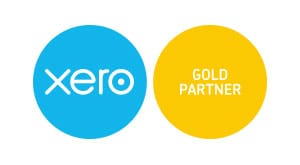STOP PRESS 20th February 2024
One week after announcing its guidance on the tax treatment Double Cab Pick-Ups (see below) HMRC have now reversed the position and the guidance will be withdrawn.
This means that double cab pick-ups will continue to be taxed as commercial vehicles and NOT as cars.
HMRC said:
“The government has listened carefully to views from farmers and the motoring industry on the potential impacts of the change in tax-treatment. The government has acknowledged that the 2020 court decision and resultant guidance update could have an impact on businesses and individuals in a way that is not consistent with the government’s wider aims to support businesses, including vital motoring and farming industries.
“HMRC have today (19.02.2024) announced that its existing guidance will be withdrawn, meaning that DCPU’s (double cab pick- ups) continue to be treated as goods vehicles rather than cars, and businesses and individuals can continue to benefit from its historic tax treatment.”
Martin Dennis original blog post 13.02.2024
HMRC have announced that from July 2024, double cab pick-ups will be classed as cars instead of vans. This will have significant tax implications for those provided with such a vehicle by the company where there is private use.
Currently, most 4 door pick-up trucks such as the Ford Ranger and Nissan Navara, are treated for tax purposes as vans. The change in HMRC’s rules to classify them as “cars” means that they will be subject to higher “benefit in kind” (BIK) tax charges.
The difference in tax payments will be significant and will impact many people who genuinely use double cab pick-ups for their job. The benefit in kind tax charge will be calculated on the cost and carbon dioxide emissions of the vehicle.
At the moment a basic rate taxpayer driving a double cab pick-up as a company vehicle pays a flat amount of tax of £943 a year covering the use of the vehicle and all fuel, while a 40 percent taxpayer pays £1,887 a year. Going forwards, we are looking at charges for a mid-range vehicle (assume £30,000 +VAT) in the region of £4,700 for a basic rate taxpayer and £9,400 for a 40 percent taxpayer which includes fuel benefit.
In addition, the employer will need to pay additional National Insurance which in this example will be approximately £2,600.
It is worth noting that those people already driving double cab pick-ups will have their vehicle treated as vans until 5 April 2028, but any vehicles acquired/leased on or after 1 July 2024 will be classed as cars with the higher BIK tax charge.
HMRC previously used the definitions used for VAT guidance for commercial classification which is based on the vehicle’s payload. Instead now most, if not all, double cab pick-ups will be classified as cars when calculating the benefit charge because they are equally suited to conveying passengers and goods, and are not predominantly for commercial use.
Please contact us if you would like advice on any tax or accountancy matters by emailing info@rpg.co.uk or call 0161 608 0000.
This article is for information only. Please take professional advice relating to your own personal circumstances before making any decisions.








 Production
Production
